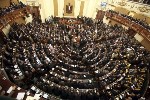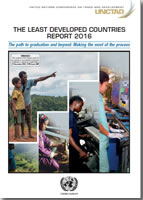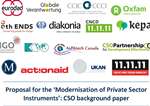Social Watch News
Published on Thu, 2017-02-16 19:35
One of the 11 areas that the World Bank’s Doing Business Report include in ranking a country’s business environment is paying taxes. The background study for the Doing Business Report 2017 (DBR 2017), “Paying Taxes 2016” claims in the foreword that its emphasis is “on efficient tax compliance and straightforward tax regimes.” The aim is to aid developing countries enhance the administrative capacities of their tax authorities, reduce informal economy and corruption, while promoting growth and investment. The very noble intention and much needed support for developing countries from the World Bank, at least on paper, deserves accolades. But, in practice, it is not what it proclaims to be. |
Published on Wed, 2017-02-15 15:28
Austerity-related labour market reforms promoted by multilateral and regional financial institutions in many developed and developing countries have been shown to not help economies recover after crises, and have instead inflicted substantial harm on working people, which will be felt for many years. This is one of the main findings of the UN Independent Expert on the effects of foreign debt on the enjoyment of all human rights, Mr Juan Pablo Bohoslavsky (from Argentina), in his latest report to the thirty-fourth session of the UN Human Rights Council, which meets here from 27 February to 24 March. In his report, the rights expert observed that many States with unsustainable levels of debt or experiencing a financial crisis have implemented austerity policies and labour market reforms with a strong deregulatory impetus, either on their own initiative or at the behest of external creditors, including international or regional financial institutions. |
Published on Mon, 2017-02-13 16:00
On November 29, 2016, the Egyptian parliament approved the draft law regulating the activity of civil organizations and institutions submitted by MP Abdul Hadi al-Qasabi on September 6, 2016. This was tantamount to a declaration of war on civil society and an attempt to crack down on all active and supportive human rights organizations. For more than 20 years now, the state has been committing a number of practices aimed to suppress and restrict these organizations and their members, but the recent parliament decision surpassed all previous practices. |
Published on Sun, 2017-02-12 00:00
Social Watch will again join forces with other NGOs and networks to publish in 2017 a new "Spotlight report" (as opposed to "shadow report") on sustainable development. This report will be launched next July during the meeting of the High Level Political Forum of the United Nations that will review at ministerial level the Agenda 2030 and its 17 Sustainable Development Goals. Almost two years after the adoption of this ambitious agenda, the 2017 report will look at how it is implemented. |
| Published on Fri, 2017-02-10 16:27 |
Published on Thu, 2017-02-09 19:36
As the Ontario and Quebec governments design their versions of a basic income pilot program, Canadians find themselves engaged in a policy question we haven’t grappled with in almost half a century: how should the welfare state evolve? At the heart of the basic income debate is a discussion about what’s required for everyone to have a basically decent life. Implicitly, it embraces a conversation about the importance of markets in that pursuit. |
Published on Thu, 2017-02-09 16:59
The Trade and Development Board of UNCTAD on Monday held a discussion on the Least Developed Countries Report 2016 which amongst others had argued that graduation of the Least Developed Countries (LDCs) is "not the winning post of a race to cease being an LDC, but rather the first milestone in the marathon of development." The number of new countries becoming LDCs, the near doubling of the size of the group in the last 45 years in part reflects the small number of countries graduating out of the category - just four in the 25 years since the principle of graduation was established (Botswana in 1994, Cabo Verde in 2007, Maldives in 2011 and Samoa in 2014). |
Published on Thu, 2017-02-09 16:25
Sovereign debt restructurings, as can be seen from examples like Greece and Argentina, are difficult, often traumatic experiences for the sovereign debtor and its citizens. It is invariably the case that in a sovereign debt restructuring (SODR), the sovereign, because it either has lost access to financing or can only obtain it on more expensive terms, will be forced to reduce its expenditures in order to try and meet its renegotiated debt payments. |
Published on Thu, 2017-02-09 16:21
On March 9, the OECD's Development Assistance Committee will decide on how to include what are known as ‘private sector instruments’ (PSI), in aid. This could mean a dramatic increase in the use of aid to invest in or give loans to private companies, or to agree to bail out failed private sector projects, through guarantees. However, without strong safeguards and transparency standards there is a real risk that aid could be used as a backdoor subsidy for corporations with powerful lobbies in donor countries. |
|
Published on Fri, 2017-02-03 18:23
» |
SUSCRIBE TO OUR NEWSLETTER








